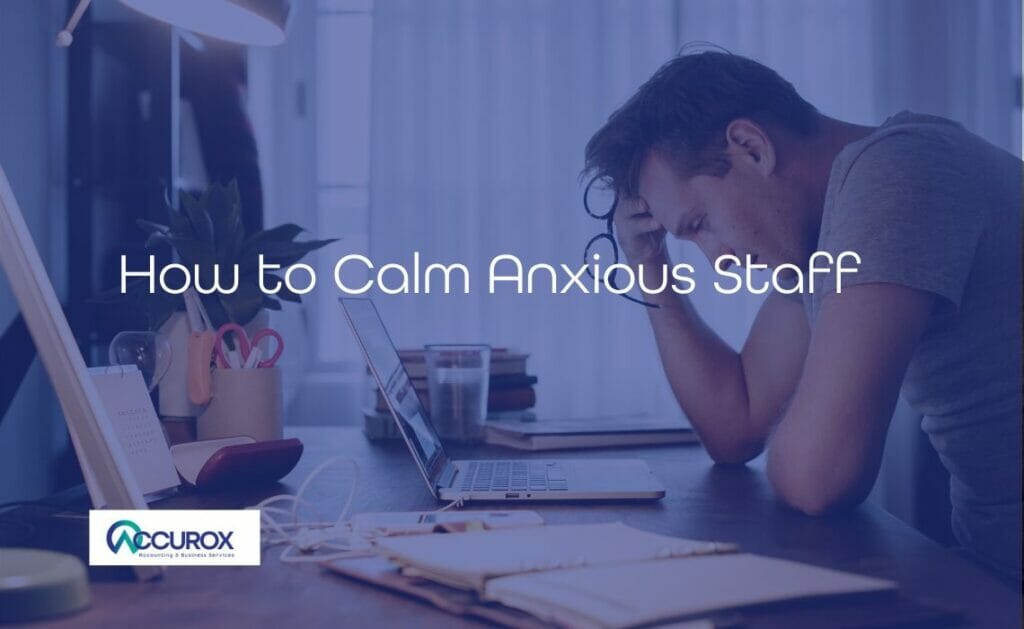As lock down has been easing many businesses have begun to reopen. Most are still a long way from business as usual though, and the strain on relationships with business contacts, family and friends is likely to affect our colleagues’ emotions for a long time. Some staff members might be dealing with bereavement and long-term sickness. Anxious staff might also be worried about family and friends, juggling schools reopening (or not) or struggling with transport. In addition, as they return to workplaces, staff could be anxious about their own safety and wellbeing. It is all very understandable, but how can you as an employer or manager, deal with this?
Tip 1: Look after yourself first
There’s a reason that flight attendants tell you to put your own oxygen mask on before you assist anyone else in the case of an emergency. You can’t be strong for other people when you aren’t looking after yourself. Your instinct as a business owner may be to look after the business and your staff first, but anxiety is infectious and it’s therefore harder to calm a team down if they can see your feelings are out of control.
Having said that, it’s OK to admit that you are worried, but when staff see you dealing with problems calmly, it’s more reassuring for them.
If we can find a way to achieve tranquility while we’re under stress that will help. Activities that will aid this include; meditation, exercise, maintaining social contact and not ruminating on worst case scenarios. You can find links to many free or reasonably priced options by doing a quick search online. And get out into the fresh air whenever you have the opportunity.
Tip 2: Assess your circumstances
Uncertainty is a major factor in people’s high anxiety levels right now. While we all stay alert, we can’t predict what Covid-19 is going to do next, or whether governments will release further funds to support companies. But taking some control by assessing our current situation will pay off.
Assess your cash flows, debts and credits. You probably worked out how long your business could survive at the start of the lockdown, and what support was available, but things have changed. Perhaps you secured a loan, but your finances didn’t take the hit you expected. Or as the situation has evolved, other opportunities have presented themselves, e.g. providing services online instead of in person, or using your resources to do something new.
Once you have a picture of your situation, how it impacts your staff and what you can or can’t do about it, you can move onto the next step.
Tip 3: Communication
Uncertainty exacerbates anxiety, which in turn destroys productivity. Anxious staff won’t be able to make the most of their time, which is critical when Covid-19 has triggered several things that reduce the number of hours people can work. Clearing some mental space will help your staff to make the most of their time.
You may not want to discuss the fine details of your situation with your staff, but you can give a calm description of how matters stand right now and what you think may happen in the coming weeks. Remove immediate worries and keep them updated on changes. Schedule a weekly meeting to do this, even if it’s just to say that nothing has changed.
You may be one of the thousands of businesses who have been dependent on the Job Retention Scheme to keep staff. If you are now facing the possibility of making staff redundant as the JRS is phased out, it’s better to be open and say when and in what circumstances that may have to happen. That gives them time to mentally prepare or tells them what they can do to try to postpone it.
Tip 4: Set clear goals
Along with clear communication, setting goals for your team will help people be more productive and ease anxiety. It may be as simple as “business-as-usual”, or it could be that there are urgent tasks that will strengthen the business. It’s in their interest to help you in order to stay employed, but they might also be relieved to have a practical task to focus on.
It’s important to be realistic and compassionate about individual circumstances and adjust workloads to suit. For example, someone who’s caring for a sick relative or who’s children have not returned to school may have to work shorter hours for some time to come. Consider work arounds wherever possible. Identify their most urgent tasks and ask them to focus on those, or reallocate that work to someone with more capacity.
Bereavement is a more serious difficulty. People respond very differently to bereavement and you may have to assess what that individual could or should do, if anything.
Tip 5: Keep reviewing
We are starting to get back to a kind of normal, but we have to accept that we must remain fluid in our response. Keep repeating the process of assessing your business and staff, adjusting your plans and communicating with staff. And don’t forget to assess yourself too!







